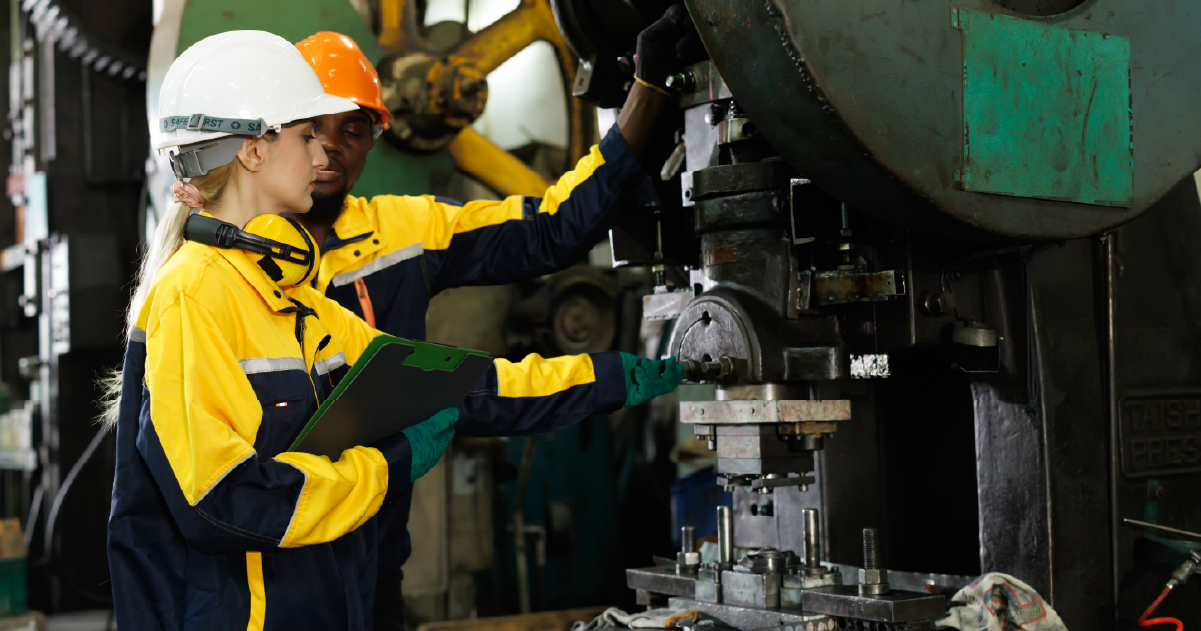Informal job knowledge is a strategic asset your business must value to stay competitive. Built through hands-on experience, these skills and practices are essential to sustaining operations, particularly in industrial and retail sectors. Central to this process lies knowledge transfer, a critical factor in sustaining organisational performance.
This article takes a closer look at the importance of transferring informal skills in the industrial and retail sectors. Explore the key factors that underpin effective knowledge and expertise management.
Understanding knowledge transfer and its strategic importance
According to a BVA survey conducted by Salesforce, 54% of employees believe their company does not pay enough attention to knowledge transfer. This highlights the need to foster a genuine culture of knowledge sharing.
Why is informal knowledge a critical asset?
Beyond the skills validated through training or certification, much of the knowledge in the workplace is built on the ground, through real-world experience. Observation, peer-to-peer exchange, repeated actions — these informal learning processes lie at the heart of operational agility.
Often tacit, this knowledge enables adaptation, innovation, and transmission. Valuing it means recognising a key intangible asset that drives collective performance.
Managers can tap into this reservoir of knowledge and skills to:
- Solve ad hoc issues in the production line
- Adapt practices to on-the-ground realities
- Improve the organisation’s overall performance
This is why they represent a valuable intangible asset for your organisation.
The risks associated with losing on-the-ground knowledge
Industrial environments are characterised by strict regulations, complex processes, and a wide range of equipment.
The industrial sector is also facing an ageing workforce. The number of experts retiring continues to grow, as confirmed by a study from DREETS Bourgogne-Franche-Comté — 301,000 specialists are affected each year.
Without a tailored knowledge management strategy, this wave of departures leads to the loss of valuable expertise — often resulting in a noticeable decline in your organisation’s productivity.
The loss of on-the-ground knowledge also hinders the quality and speed of onboarding new recruits. Your talent will struggle to absorb the knowledge essential to their role, which directly affects the effectiveness of your ongoing training efforts.
Key levers for strengthening knowledge transfer in the industrial and retail sectors
Effective skills transfer is essential to capitalising on informal knowledge. You can implement knowledge-sharing systems such as user guides and a robust skills tracking tool.
Methods for identifying and capturing informal knowledge
The first step towards sustainable knowledge transfer is to identify and centralise key tasks and operational processes. In today’s industrial landscape, effective knowledge transfer increasingly relies on digital tools.
Engage your most experienced employees to document best practices and convert tacit knowledge into a collective asset — structured, shared, and accessible to all.
Digital tools that support knowledge transfer and sharing
By using software that centralises and digitises the supervision of technical learning, knowledge transfer becomes smoother and more controlled. HR, training, and management teams can then adapt skills transfer in line with regulatory, technological, or organisational changes.
The software’s modules support the integration of new talent while showcasing the expertise of the most experienced employees.
Engage employees and recognise their expertise
Transferring knowledge also means recognising and valuing your employees’ expertise. Without this recognition, you may encounter resistance — particularly from senior staff who risk feeling that their added value is being diminished.
To prevent this, involve them fully in the knowledge transfer process. Show them they remain essential to the company’s momentum. Mentoring, in particular, is a high-impact approach — it strengthens their skills while reinforcing the value of their role and experience. You should also consider establishing a recognition system that highlights employees most actively engaged in sharing their knowledge. This fosters commitment and helps build a sustainable culture of knowledge transfer.
Turning knowledge transfer into a lasting competitive advantage
An organisation that prioritises skills development creates the ideal conditions for knowledge sharing, expertise building, and continuous improvement. Make knowledge transfer a central pillar of your company culture.
Embedding knowledge transfer into your HR and organisational strategy
To embed knowledge transfer into your HR strategy, you need to implement a structured process. Define clear steps and assign responsibilities at various levels of the organisation. Integrate this model into your existing procedures.
We recommend that you:
- Roll out a network of experienced mentors
- Train managers in key principles that support smooth knowledge and skills transfer
- Establish a culture of feedback and knowledge-sharing to encourage your teams to reflect on and learn from their actions
All of these initiatives are supported by Klara’s interactive system.
Knowledge transfer: training and supporting the next generation
According to Edgar Dale and his Learning Pyramid, people retain information far more effectively through active experience. Knowledge transfer therefore relies on practical, hands-on situations, particularly in high-demand sectors where compliance and precision are critical.
Train and support your new recruits through action-based simulations and immersion in real-world operations relevant to your working environment.
Adapt to each learner’s learning style and individual needs. A skills framework is a valuable tool to help achieve this more effectively.
Measuring the impact of knowledge capitalisation on performance
You need to implement evaluation systems (KPIs, surveys, etc.) to ensure the long-term success of your knowledge transfer process. The goal? To measure the effectiveness of the approach and make adjustments based on employee feedback.
Leverage data visualisation to track the impact of mentoring, training, and learning initiatives.

